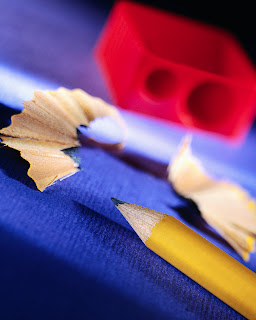"Think of your story as a living, organic entity. It breathes, it smells. It touches and it tastes. Your job is to feed these senses, to keep them alive amidst the challenge and conflict and turmoil your hero must confront." --Nancy Lamb, The Art and Craft of Storytelling.
A memory-maker. Little Angelica was scheduled to stay the night with us. When we got to her house to pick her up, we found her suitcase packed, ready, and propped up by the front door.
"She packed it herself," her mommy told us. "She's very excited to go to Grandma and Grandpa's house."
What does a three-year old pack? Well, pajamas, of course. Boots. An extra shirt and pair of leggings. A child-sized toothbrush. Oh, and a tube of chapstick. Watermelon-flavored, to be exact.
"See, I put it here, in the pocket." She unzipped the side pouch of the suitcase to show me. And, I think, to reassure herself it was still there.
Let the adventure begin!
Curious George stories. Puzzles. Bathtime with Grandma's tub toys. A wake-up call at 2 a.m. that involved a nightlight, a fly around the shade, and sounds that go
buzz, flick, buzz, flick in the dark (but that's another story). Helping Grandpa bake his famous chocolate bread. A trip to the park. Dress-up with hats from the box under the bed. But sprinkled throughout the whole experience was the effort it took to keep track of the watermelon chapstick. And uncounted requests to apply it "just one more time."
"Where's my chapstick, Grandma?"
"Can I put more on, Grandma?"
"See, I put it on this shelf. So I don't lose it."
Later:
"I put my chapstick back in my suitcase so I won't forget it when I go home."
"Just one more time, Grandma, okay? Then I'll put it away again."
And so it went. By the end of the visit, the smear above the top lip had expanded with each application until the area all around her mouth was covered with a pink film.
Children. They learn about the world through the
five senses--
sight,
smell,
hearing,
taste, and
touch. In the case of Angelica's chapstick, there's the palm-sized tube with a
red cap and picture of a slice of watermelon on the label, the
snap of the cap on and off, a
sweet (albeit "synthetic")
scent, the
watermelon flavor (which, truth be told, was the biggest draw), and the
smooth glide of the tongue over lips smeared with wax. I don't think she'll ever forget it!
Still, children aren't the only ones to learn about the world through the five senses. We all do. And our readers learn about the world of our books when we include
sensory details in our writing. Such details are instrumental in engaging readers, transporting them into a scene, evoking emotions, and providing a memorable experience (the old "show don't tell" adage). Sensory details breathe life into the story--which is what we're aiming for, aren't we? Something we certainly don't want to lose track of.
And so I take note. Along the way I've gathered five reminders of what sensory details in our writing can accomplish. The reminders include:
1. See. "Sensory details awaken sleeping thoughts and feelings, allowing our imaginations to exist in two places at once." --Nancy Lamb, The Art and Craft of Storytelling
2. Smell. "Appealing to more than one sense at a time will not only orient your readers but will make scenes more vivid and memorable. After the sense of sight, smell is often the most evocative." --Rebecca Rule and Susan Wheeler, Creating the Story, Guides for Writers
3. Hear. "Writing can only get better when sensory details are added to the narrative....Using the five senses, or sensory details, to
create an atmosphere and mood can add great depth to writing."
--Sarah Lynne Davis, suite 101.com
4. Taste. "The beginning of human knowledge is through the senses, and the fiction writer begins where human perception begins. He appeals through the senses, and you cannot appeal through the senses with abstractions." --Flannery O'Connor, Mysteries and Manners
5. Touch. "In the big scenes, try to incorporate all five senses. Sensory details pull the readers into the story in a way that allows them to transcend thinking about your story to feeling it." --Martha Alderson, Blockbuster Plots.
There is yet one more thing, however. And that is, as important as sensory details are to a story, we don't want to overload our readers with them. There is a balance we need to strike.
Sort of like too much watermelon chapstick?
Do sensory details come easy to you in your writing, or do you find yourself struggling to include them? Are you liberal with them in your first drafts, or do you have to go back to plug them in? How much watermelon chapstick do you use?
______________________



